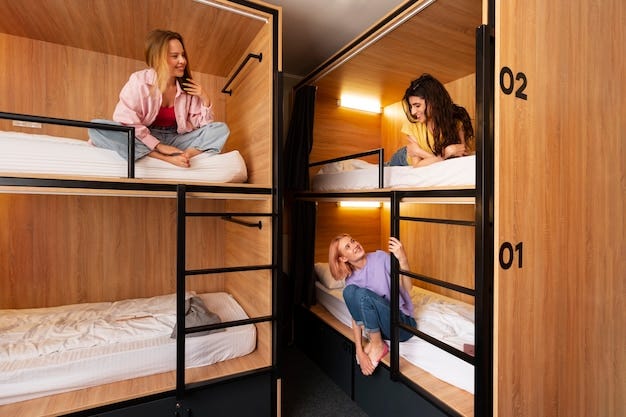Traveling solo doesn’t have to mean being alone. Across the world, travelers are discovering that the best memories come from the people they meet on the journey. Hostels, often seen as simple budget accommodations, have grown into vibrant social hubs that do far more than offer a bed. They bring together people from all walks of life, breaking barriers and building bonds that last a lifetime.
Daily Events Make Hostels Interactive Communities
Hostels often organize events like pub crawls, walking tours, or family dinners. These aren’t just for fun—they’re icebreakers. An organized activity gives travelers a shared purpose. There’s something about cheering together at a trivia night or losing to a local at table tennis that melts social walls. You might show up not knowing anyone and leave with inside jokes and new contacts from three continents. These events, curated by hostel staff, form a web of connections among guests, encouraging even the shyest travelers to open up.
Dorm Living Encourages Organic Friendships in Hostels
In hostels, dorm rooms are more than places to sleep—they’re communities in miniature. The very design of shared rooms fosters interaction. You might wake up to someone offering a coffee or end your day swapping travel tips before lights-out. It’s casual, unforced. And it’s rooted in the simplicity of sharing a room. Every bunkmate brings a different story. And in listening to those stories, something genuine starts to form. The shared rhythm of hostel life pulls strangers into the same current, creating a unique sense of togetherness.
Hostels Redefine Hospitality With Open Cultures
Hostels are not like hotels, where people come and go without a trace. They invite you to stay, linger, talk, and connect. The culture is warm, informal, and often led by young staff who themselves have traveled the world. From handwritten welcome signs to communal breakfasts, everything feels more personal. That personal touch changes the way travelers behave. People are more likely to talk, laugh, and open up when they feel at home. This sense of openness becomes the foundation for meaningful exchanges.
Shared Adventures Begin in Hostel Hallways
It’s not uncommon for travel plans to take a new turn after a chat in the hostel hallway. Someone mentions a waterfall nearby, and suddenly five of you are heading there together. The hostels are breeding grounds for spontaneous group adventures. Because everyone’s in the same boat—new town, limited time, and a thirst for experience—it’s easy to say “yes” to plans that pop up. This spontaneous spirit bonds people fast and deep. A hike, a bus ride, even a walk to the corner store becomes a shared story.
Cultural Exchange Happens Naturally
With guests from around the globe, hostels create an environment ripe for cultural exchange. Over breakfast, you might learn how to say “hello” in Japanese. At dinner, you might discover a Swedish folk song. These moments don’t feel like formal lessons. They happen naturally, through conversation and curiosity. Every day brings new perspectives. And with every interaction, your understanding of the world deepens. Travelers leave hostels with more than souvenirs—they leave with a broader view of life.
Conclusion
Hostels are more than a place to sleep—they’re a stage where friendships are formed, cultures collide, and solo journeys become shared adventures. In a world that sometimes feels disconnected, hostels quietly work to bring people closer. Whether through daily events, shared spaces, or simply a nod in the hallway, they encourage the kind of connection that gives travel its true meaning.




